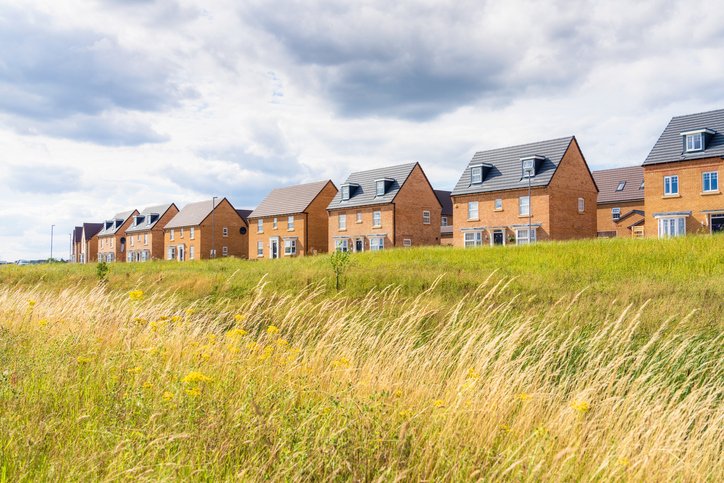England’s future food security has been called into question after losing farmland capable of feeding the combined populations of Liverpool, Sheffield and Manchester their five a day.
New research by CPRE, the countryside charity, found almost 14,500 hectares of the country’s best agricultural land, which could grow at least 250,000 tonnes of vegetables a year based on typical yields, has been permanently lost to development since 2010.
Houses on ‘prime farmland’
There was an exponential rise in Best and Most Versatile (BMV) agricultural land set aside for housing and industry between 2010 and 2022, from 60 hectares to more than 6,000 hectares per year.
Almost 300,000 homes were built on more than 8,000 hectares of prime farmland.
This is despite there being space for 1.3 million homes to be built on more than 26,000 hectares of previously developed brownfield land, much of it disused and derelict urban patches of the midlands and north most in need of regeneration.
Flooding and agriculture
The increased risk of severe flooding caused by climate change will further challenge food security in future.
More than 200,000 hectares – or 60% – of England’s finest Grade 1 agricultural land is within areas at the highest risk of flooding, known as Flood Zone 3.
Our most productive farmland is disproportionately close to river and coastal flood plains, with 75% of BMV in the East Midlands and 95% of BMV in the east of England at the highest risk of flooding.
‘Brownfield first’ development
CPRE is calling on the government to introduce a comprehensive, cross-departmental land use strategy.
It must provide a planning framework to balance the competing and often conflicting demands for farming, housing and energy on a finite amount of land, while also meeting legally binding Net Zero targets.
The National Planning Policy Framework, which is due to be updated next year, should prioritise a ‘brownfield first’ approach to housebuilding, with a preference for medium- and higher-density units to help protect our most valuable agricultural land wherever possible. There should be a firm presumption against development on BMV land.
 Play Video about This Rock Might Just Save The World
Play Video about This Rock Might Just Save The World Play Video about Play 2 hours of rock
Play Video about Play 2 hours of rock Play Video about Play 2 hours of brook
Play Video about Play 2 hours of brook Play Video about Play 2 hours of sheep
Play Video about Play 2 hours of sheep











































